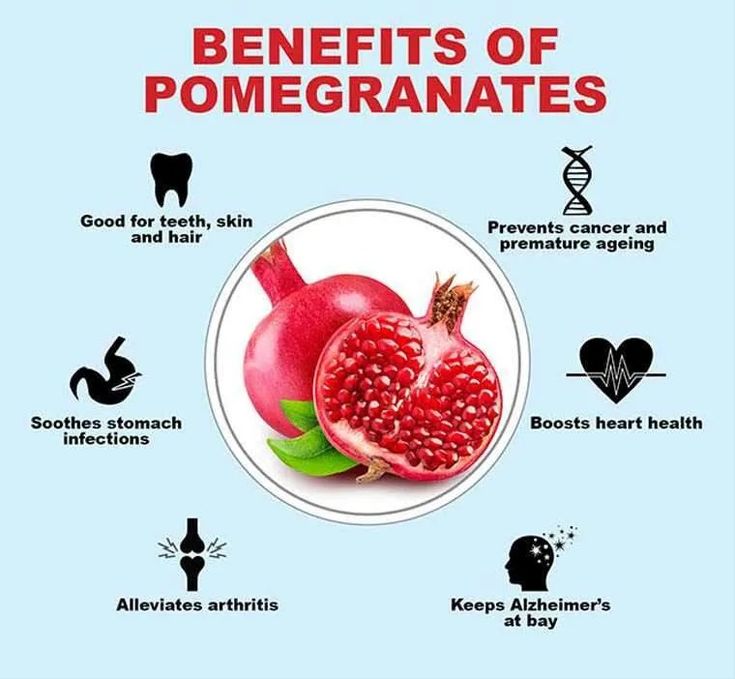The pomegranate (Punica granatum) stands out among fruits for its jewel-like seeds, tangy-sweet taste, and centuries-old reputation for health and vitality. Native to the Middle East and South Asia, this fruit has transcended borders to become a global symbol of nutrition, fertility, and longevity. Rich in antioxidants, vitamins, and medicinal properties, the pomegranate is as much revered today in clinical nutrition as it was in ancient mythology.
Botanical Profile of the Pomegranate Tree
The pomegranate is a deciduous shrub or small tree that grows between 5 and 10 meters tall, with glossy leaves and striking red flowers. The round fruit typically measures between 5 to 12 centimeters in diameter, encased in a leathery outer rind. Inside, it contains hundreds of edible arils—sacs filled with juice and a small seed—known for their brilliant red hue and nutrient density.
Nutritional Composition: A Concentrated Source of Wellness
Pomegranates are nutritional powerhouses packed with essential macro and micronutrients. A single cup (about 174 grams) of arils contains:
- Calories: 144
- Carbohydrates: 33g
- Fiber: 7g
- Protein: 3g
- Vitamin C: 30% of the Daily Value (DV)
- Vitamin K: 36% of the DV
- Folate: 16% of the DV
- Potassium: 12% of the DV
This fruit is particularly noted for its polyphenols, including punicalagin and anthocyanins, which contribute to its strong antioxidant properties.
Health Benefits of Pomegranate
1. Powerful Antioxidant Defense
Pomegranates have been shown to contain three times more antioxidants than green tea or red wine. These antioxidants, especially punicalagin and ellagic acid, combat oxidative stress, reduce cell damage, and play a key role in anti-aging mechanisms.
2. Anti-Inflammatory Properties
Chronic inflammation is at the root of numerous diseases, including arthritis, cardiovascular diseases, and cancer. The bioactive compounds in pomegranates help lower inflammatory markers such as CRP (C-reactive protein) and IL-6 (Interleukin 6), supporting long-term health.
3. Cardiovascular Health Support
Regular consumption of pomegranate juice can significantly improve heart health by:
- Lowering blood pressure
- Reducing LDL (bad cholesterol) oxidation
- Increasing HDL (good cholesterol) levels
- Enhancing arterial function
Studies have indicated that pomegranate juice may reduce arterial plaque build-up by up to 30%, thus lowering the risk of atherosclerosis and heart attacks.
4. Cancer-Fighting Potential
Research has demonstrated that pomegranate extract can inhibit the growth of cancer cells, particularly in prostate, breast, and colon cancers. The fruit’s anti-proliferative and pro-apoptotic properties make it a valuable component in integrative cancer prevention strategies.
5. Enhances Memory and Brain Health
Pomegranates contain polyphenols that have been linked to improved cognitive function. Regular intake has shown promise in slowing the progression of Alzheimer’s disease and enhancing memory recall in older adults.
6. Supports Digestive Wellness
The high fiber content in pomegranate seeds supports gut health, regulates bowel movements, and promotes the growth of beneficial gut bacteria.
7. Antimicrobial Properties
Pomegranate peel and juice have demonstrated significant antibacterial and antiviral activity, especially against pathogens like E. coli, Staphylococcus aureus, and Candida albicans.
Pomegranate in Traditional Medicine
Across Ayurveda, Traditional Chinese Medicine (TCM), and Unani, pomegranates have been revered for their healing properties:
- In Ayurveda, the fruit is used to balance the doshas and treat diarrhea, parasites, and inflammation.
- In TCM, pomegranate is prescribed for its cooling properties to stop excessive thirst, diarrhea, and dysentery.
- In Middle Eastern medicine, the rind and bark were traditionally used for deworming and treating ulcers.

Culinary Uses of Pomegranate
The versatility of pomegranates extends to a wide range of dishes and beverages. Common uses include:
- Fresh arils: Eaten raw as a snack or salad topping.
- Juice: Consumed fresh or used in cocktails and smoothies.
- Syrup (Grenadine): A key ingredient in many cocktails and Middle Eastern sauces.
- Molasses: A thick reduction used in Persian and Mediterranean cuisine.
- Baking: Incorporated into cakes, muffins, and breads.
- Garnishes: Brighten up rice dishes, meat, and desserts.
How to Select and Store Pomegranates
To select a ripe pomegranate, look for:
- Heavy fruits: Indicates more juice content.
- Firm skin: Avoid soft or cracked exteriors.
- Deep red color: Reflects ripeness and nutrient density.
For storage:
- Whole fruit: Keeps well at room temperature for several days or in the fridge for up to 2 weeks.
- Arils: Store in an airtight container in the fridge for 3–5 days or freeze for up to 6 months.
- Juice: Fresh juice should be consumed within 2–3 days if refrigerated.
Potential Side Effects and Precautions
While generally safe for most people, pomegranate may cause side effects in specific cases:
- Allergies: Rare, but can include itching, swelling, or difficulty breathing.
- Medication interactions: Pomegranate may interact with blood pressure and cholesterol medications. Consult a healthcare provider before consuming large quantities.
- High sugar content: Those with diabetes should monitor their intake of juice.
Growing Pomegranates at Home
Pomegranate trees are relatively easy to cultivate in warm climates (USDA zones 7–10). Key tips for successful cultivation:
- Sunlight: Requires full sun exposure (6+ hours daily).
- Soil: Prefers loamy, well-draining soil with a neutral to slightly acidic pH.
- Watering: Deep watering every 7–10 days during dry seasons.
- Pruning: Encourages better airflow and more fruit production.
- Harvesting: Typically ready 6–7 months after flowering, when the fruit emits a metallic sound when tapped.
Cultural and Symbolic Significance
The pomegranate holds a special place in various cultures:
- In Greek mythology, it symbolizes life and rebirth.
- In Judaism, the fruit represents righteousness and is often consumed during Rosh Hashanah.
- In Christianity, it signifies resurrection and eternal life.
- In Islamic tradition, the pomegranate is referenced in the Quran as a fruit of paradise.
Conclusion
The pomegranate is far more than a delicious fruit—it is a symbol of vitality, a storehouse of nutrients, and a cornerstone of traditional healing. Its multifaceted benefits make it an indispensable addition to the modern diet and an enduring symbol of health, culture, and resilience.


